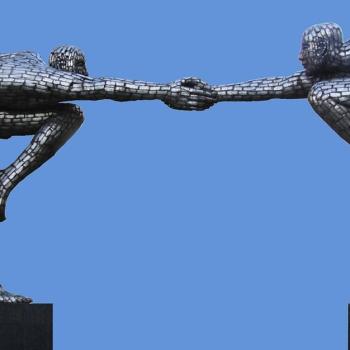After a year of sharing these simple ideas in a one-day-at-a-time format, with the @tinybuddha follower count growing into the thousands (now more than two hundred thousand), I reassessed: What was I doing? Was I merely regurgitating words that felt good or feeling good about doing something with them?
I considered that maybe lots of other people just like me were sitting at their computers wondering if they felt proud of how they answered the question, "What are you doing? " Reading an inspiring quote doesn't guarantee inspired action, particularly in an information-overloaded world where many of us spend our days inertly glued to technology. Sometimes when we gorge ourselves on meaningful words, we fall into an intention coma—too overwhelmed by other people's thoughts to identify the right choices for ourselves.
So I developed TinyBuddha.com in September 2009, where anyone can contribute tips and stories about wisdom in everyday life. Since then, I've watched a community grow from one to more than I ever could have imagined (more than three million unique visits to the website and more than fifty thousand Facebook and two hundred thousand Twitter followers), all of us looking to learn and share wisdom—people of all ages and backgrounds from all over the globe united by the same sense of uncertainty and a determination to thrive regardless.
That's what brought me to this book: a fascination with the questions that connect us and the wisdom—conventional or otherwise—that guides the decisions we make each day.
What You'll Get from This Book
Nearly one thousand people responded when I began asking life's hardest questions on Twitter, planning to create a collaborative book. As I read through their responses, I realized the answers fell into distinct categories of ideas. While there were occasionally responses that didn't parallel anyone else's, for the most part, the tweets grouped themselves into sections.
I didn't influence the responses to fit an agenda; I shaped my exploration around the suggestions in the tweets. Just like friends of Tiny Buddha in all its forms have guided TinyBuddha.com, their insights form the backbone of this book. Since many of the tweets were quite similar, I chose a handful that aligned with each shared perspective. From there, I dug through the archives of my memories to weigh the ideas against my own experiences and then dived into books and articles that shed further light on these ideas.
Throughout each section, you'll find a number of tips and exercises to help you take action on what you've read. Now, I never do exercises as I read a book—not even when an author writes, "I know you probably don't usually do exercises in books, but please do these!" So I have a different suggestion for you: Highlight the ones that seem useful to you, and when you find yourself in a relevant situation in life, come back to them and take action then.
I'm not a huge fan of vague, flowery, New Age jargon, so I've gone to great effort to keep this book practical and rooted in reality. I recently read a blog post about succeeding in sales. The author suggested that the best way to sell anything is to position it as the magic bullet—the ultimate answer or method to doing something that we all want to do in life but don't want to work for, like losing weight, getting a fulfilling job, or finding happiness. He offered some supporting information to show that we more often spend money on worthless things that seem like quick fixes than on proven systems that require time and effort. Despite the advice, which I suspect holds some truth, I will tell you this book is not a magic bullet.
Sometimes when we gorge ourselves on meaningful words, we fall into an intention coma—too overwhelmed by other people's thoughts to identify the right choices for ourselves.
This is not a guide of absolute answers. It's crowdsourced wisdom often supported by scientific, psychological, and sociological research, that may help you experience meaning, happiness, and peace right now, regardless of your circumstances. It's a reflection of and on popular opinion and an examination of the ways we can leverage what we know and what we don't for our individual and collective well-being.
Sharing parts of my personal journey was a lot like doing intermittent cartwheels naked on my front lawn—my stories might be brief, but I certainly put it all out there. In the spirit of that same authenticity, I want to be clear that I am not an expert on living wisely. I suspect that if I presented myself that way, I'd immediately convey my ignorance, because wisdom is a lifelong pursuit. I didn't write this book sitting at a cherrywood desk in my psychiatry office or in between personal development seminars I host around the globe. I wrote this from the shabby couch I bought on Craigslist while running a Twitter account and a website that appear to help a lot of people. I acknowledge my nonexpert status not to undermine my ideas but to remind you up front that we all possess the same capacity to reason, learn, and then act based on what makes sense to us.




